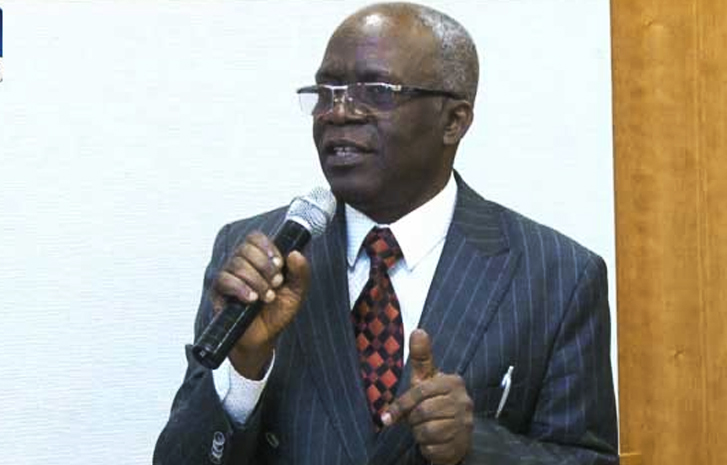Strike: Falana sues Nigerian govt for allegedly discriminating against university lecturers
Femi Falana, a human rights lawyer and activist, has sued the federal government over what he called “discriminatory…treatment of members of Academic Staff Union of Universities (ASUU).
Lecturers in Nigeria’s government-owned varsities had embarked on strike in February 2022, demanding better funding of the universities and improved welfare of academics.
But instead of addressing the concerns, the federal government sued the lecturers’ union, ASUU, at the National Industrial Court of Nigeria in Abuja.
In the suit, the government urged the court to affirm its “No work, no pay” policy as a way of deterring incessant strikes that have plagued public universities in Nigeria.
Deciding the suit on Tuesday, the court upheld the government’s “No work, no pay” policy.
The ruling justified the federal government’s refusal to pay the arrears of salaries owed the striking lecturers while the industrial dispute lasted.
But in Mr Falana’s suit before the National Industrial Court in Abuja, the lawyer listed the Minister of Labour and Employment; Attorney-General of the Federation; and Accountant-General of the Federation as defendants.
Issues
In the suit, Mr Falana is urging the court to determine “Whether having paid the salaries of members of the Joint Staff Union, National Association of Resident Doctors and lecturers in the Medical Facilities/Medical and Dental Academic of the Nnamdi Azikiwe University, Nnewi Campus, Anambra State during the period of industrial actions, the decision of the defendants to withhold the salaries of the members of the Claimant from February to October 2022 is not discriminatory and illegal.”
The lawyer is also praying the court to determine “Whether the members of ASUU are not entitled to payment of their salaries for the months of February to October 2022 forthwith.”
Mr Falana said the government’s “refusal… to implement the agreements between them” and the lecturers triggered the strike that was declared by the lecturers in February 2022.
Justifying why the government ought to pay the lecturers while they were on strike, Mr Falana argued that “despite the withdrawal of teaching, the provision of educational services which cover other aspects of our engagement as academics (i.e research and community service) subsists across the public universities in Nigeria.”
He pointed out that the then education minister, Chris Ngige, “instructed the Accountant-General of the Federation not to pay the members of ASUU members for the period of the industrial disharmony.”
To establish the government’s discriminatory policy, Mr Falana said health workers embarked on strike from March to May in 2018 “but the Defendants paid their salaries for the period of the strike.”
“Despite repeated demands, the Defendants have refused to pay the salaries of members of the Claimant who took part in the strike that took place from February to October 2022.”
In urging the court to grant his prayers, Mr Falana cited relevant provisions of the Nigerian constitution and the African Charter on Human and Peoples’ Rights (Ratification and Enforcement) Act 2004 to support his case.
He asked the court to declare that the government’s withholding of salaries of lecturers who took part in the industrial action from February to October 2022 is “discriminatory, selective and illegal.”
Also Read: ASUU Strike: court upholds FG’s no-work no-pay stance against university lecturers
He asked the court for “A DECLARATION that having paid the salaries of lecturers of the Medical Facilities / Medical and Dental Academic of the Nnamdi Azikwe University, Nnewi Campus, Anambra State who were on strike from February to October 2022, the decision of the Defendants to withhold the salaries of the members of the Claimant is discriminatory and illegal…”
Mr Falana urged the court for an order compelling the government “to pay the withheld salaries of the members of the claimant for the months of February to October 2022 forthwith.”
No date has been fixed for the hearing of the case.













